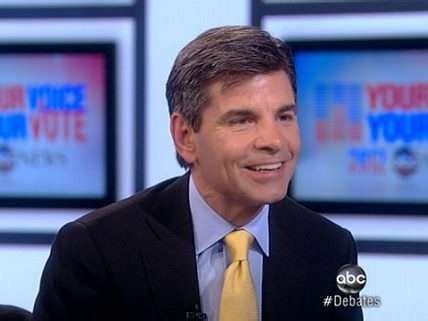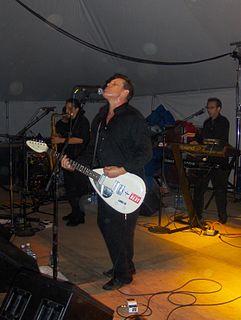A Quote by Frank Chodorov
The 16th Amendment corroded the American concept of natural rights; ultimately reduced the American citizen to a status of subject, so much so that he is not aware of it; enhanced Executive power to the point of reducing Congress to innocuity; and enabled the central government to bribe the states, once independent units, into subservience. No kingship in the history of the world ever exercised more power than our Presidency, or had more of the people's wealth at its disposal.
Quote Topics
Amendment
American
American Citizen
Aware
Bribe
Central
Central Government
Citizen
Concept
Congress
Disposal
Enhanced
Ever
Executive
Executive Power
Government
Had
History
Independent
Kingship
More
More Power
Much
Natural
Natural Rights
Once
Our
People
Point
Power
Presidency
Reduced
Reducing
Rights
States
Status
Subject
Subservience
Than
The History Of
Ultimately
Units
Wealth
World
Related Quotes
The open frontier, the hardships of homesteading from scratch, the wealth of natural resources, the whole vast challenge of a continent waiting to be exploited, combined to produce a prevailing materialism and an American drive bent as much, if not more, on money, property, and power than was true of the Old World from which we had fled.
This Congress did more to uplift education, more to attack disease in this country and around the world, and more to conquer poverty than any other session in all American history, and what more worthy achievements could any person want to have? For it was the Congress that was more true than any other Congress to Thomas Jefferson's belief that: 'The care of human life and happiness is the first and only legitimate objective of good Government.'
I feel that if people investigate the emergence of government, of State power - if they examine the logic of State power historically, and more specifically in the United States - they will find that the concept of limited government is not tenable once they adopt some type of libertarian principle.
Modern Democrats aren't the first political party to abuse power - far from it. Obama isn'??t the first president to abuse executive power - not by a longshot. But he has to be the first president in American history to overtly and consistently argue that he's empowered to legislate if Congress doesn'??t pass the laws he favors. It's an argument that's been mainstreamed by partisans and cheered on by those in media desperate to find a morsel of triumph in this presidency.
I was very, very concerned about President Obama and how much executive order and how much executive power he tried to exert. But I think I want to be, and I think congress will be, a check on any executive, Republican or Democrat, that tries to grasp too much power. And really, a lot of the fault is not only presidents trying to take too much power, it's Congress giving up too much power.
Americans' liberty is perishing beneath the constant growth of government power. Federal, state and local government's are confiscating citizens' property, trampling their rights, and decimating their opportunities more than ever before.... American liberty can still be rescued from the encroachments of government. The first step to saving our liberty is to realize how much we have already lost, how we lost it, and how we will continue to lose unless fundamental political changes occur.
Our Founding Fathers well understood that concentrated power is the enemy of liberty and the rights of man. They knew that the American experiment in individual liberty, free enterprise and republican self-government could succeed only if power were widely distributed. And since in any society social and political power flow from economic power, they saw that wealth and property would have to be widely distributed among the people of the country. The truth of this insight is immediately apparent.
In your ordered verdict of guilty, you have trampled under foot every vital principle of our government. My natural rights, my civil rights, my political rights, my judicial rights are all alike ignored. Robbed of the fundamental privilege of citizenship, I am degraded from the status of a citizen to that of a subject; and not only myself individually, but all of my sex, are, by your honor's verdict, doomed to political subjection under this, so-called, form of government.
Power is a central issue in social and personal transformation. Our sources and uses of power set our boundaries, give form to our relationships, even determine how much we let ourselves liberate and express aspects of the self. More than party registration, more than our purported philosophy or ideology, personal power defines our politics.
We, the People of this country, have no unalienable rights... all our rights are subject to modification... the Constitution of the United States of America is nothing more than a piece of paper and... our government should not be restrained by the Constitution because our government can do good things for people.
You see the natural progression of what happens when the executive gets power and then a new executive comes in. The new executive doesn't say, "Oh, man. The president has just got too much power. We're going to dial that back." No, they expand the power. It's like, "He didn't use it well, so I'm going to take more power and use it better because I'm a better guy and my values are better." Then you suddenly realize that the very people who were attacking Guantánamo prior to getting into office are now the people expanding an assassination program overseas.
I think there's a pride of what a real American can be. I mean, I'm a transplant, but I've got American kids and an American wife, and when I go back to England I feel more like an American, the way I look at the world, is more from an American perspective at this point. I've traveled every state 30 or 40 times, and have met an amazing array of people, and I have found Americans to be among the most kind and tolerant people I have ever met.
Adam Clayton Powell's entire political career has to be looked at in the entire context of the American history and the history of, and the position of the Afro- American or negro in American history. [He] has done a remarkable job in fighting for rights of black people in this country. On the other hand, he probably hasn't done as much as he could or as much as he should because he is the most independent negro politician in this country.

































